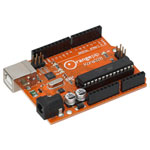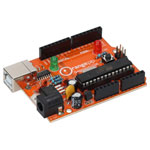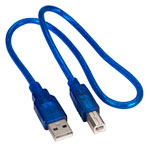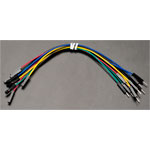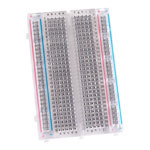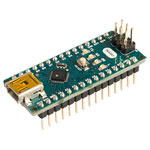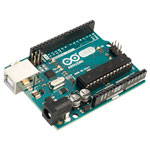
73-4440
- RoHS Compliant
- Country of Origin: Italy
- Free UK shipping available
- View Full Product Range (8)
| Qty | Unit Price (Ex VAT) |
|---|---|
| 1+ | £20.12 |
The Arduino Uno Board A000066 R3 is a microcontroller board based on the ATmega328.
It has 14 digital input/output pins (of which 6 can be used as PWM outputs), 6 analog inputs, a 16 MHz crystal oscillator, a USB connection, a power jack, an ICSP header, and a reset button. It contains everything needed to support the microcontroller - simply connect it to a computer with a USB cable or power it with an AC-to-DC adaptor or battery to get started.
The Uno differs from all preceding boards in that it does not use the FTDI USB-to-serial driver chip. Instead, it features the Atmega16U2 programmed as a USB-to-serial converter.
- Microcontroller ATmega328
- Operating voltage 5V
- Input voltage range nom. 7-12V
- Maximum supply voltage 20V
- Digital I/O pins 14 (of which 6 provide PWM output)
- Analog input pins 6
- DC Current per I/O pin 40 mA
- DC Current for 3.3V pin 50 mA
- Flash memory 32 KB of which 0.5 KB is used by bootloader
- SRAM 2 KB
- EEPROM 1 KB
- Clock speed 16 MHz
- USB Connector type B Male
| Type | MCU board |
|---|
To use this facility please Sign In.
Sign In



